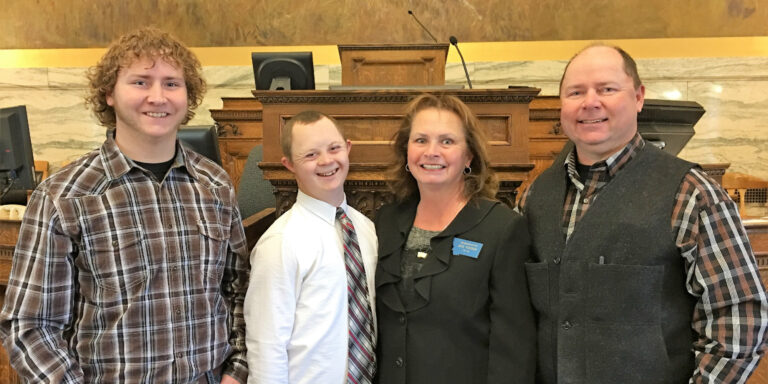Breaking Down the EdChoice “Surveying State Legislators” Report
In our Surveying State Legislators report, we share findings from a phone survey of state legislators from across the country. It’s worth noting that we believe this is the first systematic phone-only survey of this population in more than 15 years, and it is the first ever phone survey of lawmakers on how they make decisions about K–12 education issues.
With this research, we sought to better understand what state legislators think about a number of education topics—including educational choice policies—as well as how they feel about the profession, sources of information they trust and how often they consider different sources of influence when making legislative decisions.
Flip through the slide show below to learn our top findings for school choice advocates. You can also find the full report by visiting the Surveying State Legislators report here.
What You’ll Learn:
We found many state legislators are unsure of the fastest-growing educational choice policy in the nation: education savings accounts (ESAs). About 29 percent didn’t know or didn’t provide an answer when asked, “Based on what you know, or have heard from others… In general, do you favor or oppose ESAs?”
But once provided a description of ESAs, we found the majority of state legislators’ say they would support ESAs, and the rest of the nation agrees.
Legislators: 61% favor
National Average: 62% favor
Legislators: 30% oppose
National Average: 28% oppose
However, the majority of state lawmakers’ views on other types of school choice do not appear to be aligned with the American public.
Lawmakers are less likely to support school vouchers, despite much stronger support for vouchers among the American public. (Where 52 percent of legislators favor vouchers and 40 percent oppose, 61 percent of the American public favor vouchers and only 33 percent oppose.) On the other hand, state legislators are more likely to support charter schools than the rest of the country. (Where 67 percent of legislators favor charters, only 53 percent of Americans do.)
There’s certainly more educating to be done, and it’s up to educational choice advocates to find better pathways to inform state legislators.
Here’s what we’ve learned about state lawmakers’ habits and preferences.
Lawmakers biggest professional challenges are:
34% time use and management
19% partisanship
17% budgets and finance
16% constituent services
15% working on legislation
Most lawmakers love their jobs.
“On a scale from 0 to 10, how likely is it that you would recommend serving as a state legislator to a friend or colleague?”
54% Promoters (9 or 10)
31% Passives (7 or 8)
13% Detractors (0 to 6)
Though, some more than others.
Percentage of Promoters by Region:
68% of Northeastern legislators
62% of Midwestern legislators
47% of Southern legislators
36% of Western legislators
State legislators are likely frustrated because they spend:
-too little time communicating on social media (39%)
-too little time working on legislation (36%)
-too much time attending party-related meetings (21%)
-too much time fundraising (17%)
Most lawmakers pay attention to different media on a daily basis to learn about K–12 education.
41% read local newspaper
40% personal contacts/networks
31% watch major networks’ nightly news broadcast
26% use Facebook
15% listen to NPR
11% use Twitter
But most of all, state lawmakers rely on direct experiences to set their legislative priorities.
85% say communicating with constituents is of high importance
77% professional experience
76% personal experience
36% caucus leadership
26% interest group information
19% hot issues in the news
13% surveys/polls
And personal networks and experiences are their most-trusted sources when voting on K–12 education issues.
82% communications with constituents
76% professional experience
79% personal experience
32% caucus leadership
21% interest group information
14% hot issues in the news
12% surveys/polls
Notably, the more likely a legislator is to recommend their job to others, the more likely they are to rely on the following to inform their voting decisions:
- caucus leadership
- interest group information
- polling
Our No. 1 takeaway?
The work educational choice advocates are already doing—promoting research and data, engaging families—all matters, but because of their limited time and capacity, lawmakers likely prefer to learn about that work from the people closest to them—their trusted personal contacts and constituents.
For more regional and subgroup details from this survey, visit edchoice.org/LegislatorSurvey.
To contact the author, Vice President of Research and Innovation Paul DiPerna, email paul@edchoice.org.




